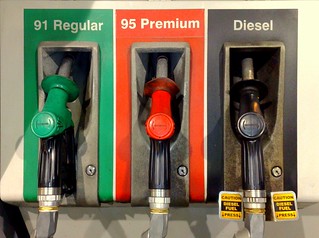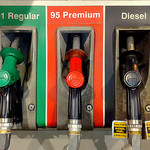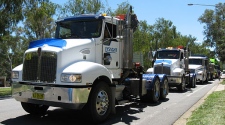 The global marketplace depends on commercial trucking, which transports everything from socks and canned beans to heavy equipment and parts for manufacturing. Yet unpredictable oil prices make the business side of trucking especially tricky because fuel costs easily represent the biggest expense in a trucking operations budget.
The global marketplace depends on commercial trucking, which transports everything from socks and canned beans to heavy equipment and parts for manufacturing. Yet unpredictable oil prices make the business side of trucking especially tricky because fuel costs easily represent the biggest expense in a trucking operations budget.
The estimated annual cost for operating a single commercial truck approximates $200,000, and the lion’s share of this investment is made up of fuel costs. As fuel prices rise and fall unpredictability, companies must pass on current and potential expenses to consumers in the form of higher prices for consumer goods.
On-board fleet-management technology can help trucking businesses and fleet managers monitor direct fuel consumption as well as aspects of trucking that impact fuel efficiency, including maintenance schedules, route planning and vehicle efficiency add-ons such as tires.
Over the course of a year, a commercial truck can easily consume more than $70,000 worth of fuel, according to The Truckers Report. Finding ways to reduce fuel expenses is a matter of survival for fleet managers, self-employed drivers and others in the trucking industry.
Exploring the Impact of Topsy-turvy Fuel Costs
Among the variable costs that truckers incur, fuel prices may be the one that most dramatically affects take-home pay. “For every one-penny increase in the price of diesel, it costs our industry $391 million,” says Tiffany Wlazlowski, a spokeswoman for the American Trucking Associations. With the price of diesel fuel hovering around $4, the cost to fill the tank of an 18-wheeler is now well over $1,000.
But the impact of fuel costs also affects the amount of discretionary funds that are available for consumers to spend on products that actually make it to store shelves. In a CNN Money article, Chris Lafakis, a senior economist at Moody’s Analytics, points out that every one cent rise in gas prices, sustained for a year, results in a billion fewer dollars in Americans’ collective pocket.
Reducing Fuel Expenses
Here are four ways to reduce the use and expense of fuel:
- Reduce Drag: Aerodynamic upgrades such as trailer skirts, better tires that reduce rolling resistance and keeping tires properly inflated and other attachment modifications can help reduce vehicle drag and improve fuel efficiency by as much as 15 percent.
- Slowing Speeds: “Experts agree that every mile per hour driven over 60 mph reduces fuel economy by one-tenth of a mile per gallon,” reports SelecTrucks. To manage speed as a way to get the most mileage from fuel, some companies are implementing adaptive cruise control, which can help drivers manage their speed based on the driving conditions around them. Different from standard cruise control, adaptive cruise control senses traffic patterns and responds accordingly to improve highway safety while helping truckers save fuel.
- Timing Fill ups Right: By filling up your truck early in the morning and avoiding stations that have recently filled ground tanks, The Truckers Report suggests that drivers can significantly improve gas mileage.
















